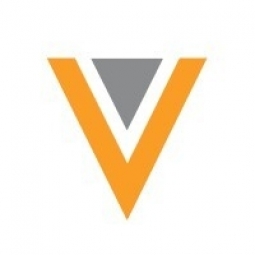Technology Category
- Analytics & Modeling - Machine Learning
- Platform as a Service (PaaS) - Application Development Platforms
Applicable Industries
- Equipment & Machinery
- Transportation
Applicable Functions
- Logistics & Transportation
- Product Research & Development
Use Cases
- Inventory Management
- Last Mile Delivery
Services
- Data Science Services
About The Customer
GSK is a global healthcare company with a mission to help people do more, feel better, and live longer. The company produces a wide range of prescription medicines, vaccines, and consumer healthcare products. GSK is committed to widening access to its products, improving the way diseases are managed, and developing new treatments that will help to define the future of healthcare. The company is constantly exploring new ways to speed up the delivery of life-saving treatments and improve its operational efficiency. GSK's modernization project is a testament to its commitment to leveraging technology to enhance its operations and ultimately benefit patients.
The Challenge
GSK, a global healthcare company, was facing challenges in managing its clinical data due to the use of multiple Electronic Data Capture (EDC) systems and complex processes. The company was using at least four different types of EDCs within its clinical data ecosystem, each customized to such an extent that it resembled a jigsaw puzzle. This complexity was slowing down the process of data review and management. Additionally, the company was struggling with the proliferation of digital data sources as it embraced hybrid digital trial models. The need for effective data management had become a key driver of trial success. GSK also aimed to accelerate the delivery of life-saving treatments, a goal hindered by the existing complex data management system.
The Solution
To address these challenges, GSK decided to implement Veeva CDB, a clinical database that speeds up data cleaning and standardization. This allowed GSK's data to be managed, reported, and analyzed more efficiently. The company also adopted Veeva Vault CDMS as its single, core Clinical Data Management (CDM) platform, avoiding customization and choosing a platform based on its inherent capabilities. This move towards a single platform aimed to improve data review and reduce complexity. The new system aggregates and harmonizes clinical data from every source to centralize cleaning and reconciliation. Additionally, GSK leveraged technology enablers such as AI and machine learning to support data cleaning and exploration, surfacing trial insights. The company also adopted an agile development process, which allowed it to complete the project in just 18 months.
Operational Impact
Quantitative Benefit

Case Study missing?
Start adding your own!
Register with your work email and create a new case study profile for your business.
Related Case Studies.

Case Study
Smart Water Filtration Systems
Before working with Ayla Networks, Ozner was already using cloud connectivity to identify and solve water-filtration system malfunctions as well as to monitor filter cartridges for replacements.But, in June 2015, Ozner executives talked with Ayla about how the company might further improve its water systems with IoT technology. They liked what they heard from Ayla, but the executives needed to be sure that Ayla’s Agile IoT Platform provided the security and reliability Ozner required.

Case Study
IoT enabled Fleet Management with MindSphere
In view of growing competition, Gämmerler had a strong need to remain competitive via process optimization, reliability and gentle handling of printed products, even at highest press speeds. In addition, a digitalization initiative also included developing a key differentiation via data-driven services offers.

Case Study
Predictive Maintenance for Industrial Chillers
For global leaders in the industrial chiller manufacturing, reliability of the entire production process is of the utmost importance. Chillers are refrigeration systems that produce ice water to provide cooling for a process or industrial application. One of those leaders sought a way to respond to asset performance issues, even before they occur. The intelligence to guarantee maximum reliability of cooling devices is embedded (pre-alarming). A pre-alarming phase means that the cooling device still works, but symptoms may appear, telling manufacturers that a failure is likely to occur in the near future. Chillers who are not internet connected at that moment, provide little insight in this pre-alarming phase.

Case Study
Premium Appliance Producer Innovates with Internet of Everything
Sub-Zero faced the largest product launch in the company’s history:It wanted to launch 60 new products as scheduled while simultaneously opening a new “greenfield” production facility, yet still adhering to stringent quality requirements and manage issues from new supply-chain partners. A the same time, it wanted to increase staff productivity time and collaboration while reducing travel and costs.

Case Study
Integration of PLC with IoT for Bosch Rexroth
The application arises from the need to monitor and anticipate the problems of one or more machines managed by a PLC. These problems, often resulting from the accumulation over time of small discrepancies, require, when they occur, ex post technical operations maintenance.

Case Study
Data Gathering Solution for Joy Global
Joy Global's existing business processes required customers to work through an unstable legacy system to collect mass volumes of data. With inadequate processes and tools, field level analytics were not sufficient to properly inform business decisions.







